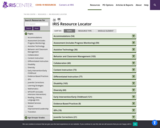
IRIS Resource Locator
- Subject:
- Education
- English Language Arts
- Speaking and Listening
- Material Type:
- Primary Source
- Author:
- IRIS Center
- Date Added:
- 08/15/2022

IRIS Resource Locator

Checklist of best practices for creating accessible resources.The Accessibility Checklist is adapted from BC Open Textbook Accessibility Toolkit, CC-BY 4.0 International License.

This module is part of a course on Inclusive Educational Practices that offers professional development for educators who aspire to provide a supportive learning environment for dyslexic and with learning difficulties learners.Students have different needs, interests, and abilities. In order to effectively teach them and provide them with rich learning experiences, lesson plans need to be as diverse as they are. This module aims to help educators analyze different learning styles and accordingly build their lesson plans as to embrace and support not only the needs of specific learners but provide quality education for all students. To this end, tools, articles, guidelines, videos, and examples are provided. Planning a lesson for an inclusive classroom entails less modifications for future use in a different learning context, facilitates a substitute to take over the class, and ensures learning for every child."It is not the disabilities of the students that prevent the implementation of a long effective instructional model, but the environment that is disabling" Katz, 2015

In this module, teaching credential candidates in elementary, secondary, and special education will learn about the assets and inequities that a focus on intersectionality can illuminate, and how this learning will affect their future work in classrooms.
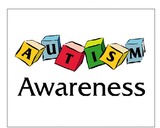
An introductory module to autism spectrum disorders (ASD), and a discussion of inclusivity and diversity. Multiple videos, books and articles are included.
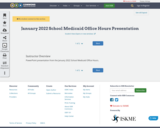
PowerPoint presentation from the January 2022 School Medicaid Office Hours.

I use this Jeopardy!-style game to test, reinforce, and enhance students' understanding of Special Education Law. Playing the game and discussing the answers takes about one hour. I use a free online multiplayer buzzer system that requires students to respond to questions by typing their answers into a text entry field (www.cosmobuzz.net). I give students plenty of time to answer each question and award points for all correct answers. At the end of the game, I award a prize to the winning student (e.g. a Starbucks gift card). I haven't uploaded the answer key here because I don't want students to see the correct answers online; feel free to email me at david.moss@wayne.edu for a copy of the answer key.
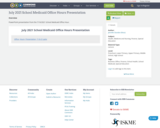
PowerPoint presentation from the 7/16/2021 School Medicaid Office Hour.
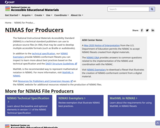
The National Instructional Materials Accessibility Standard (NIMAS) is a technical standard publishers can use to produce source files (in XML) that may be used to develop multiple accessible formats (such as Braille or audiobooks).
In addition to the technical specification, our NIMAS Exemplars provide NIMAS-conformant filesets you can inspect to learn more about best practices based on the technical specification and the DAISY Structure Guidelines.
MathML is the recommended way to represent mathematical notation in NIMAS. For more information, visit MathML in NIMAS.
Visit Resources for Publishers and Conversion Houses on the NIMAC website for additional resources related to the production of NIMAS files.
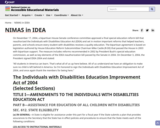
On November 17, 2004, a bipartisan House-Senate conference committee approved a final special education reform bill that reauthorized the Individuals with Disabilities Education Act (IDEA) and set in motion important reforms that helped teachers, parents, and schools ensure every student with disabilities receives a quality education. The bipartisan agreement is based on legislation authored by House Education Reform Subcommittee Chairman Mike Castle (R-DE) that passed the House in 2003 with bipartisan support. The measure includes reforms recommended in 2002 by President Bush's special education commission, as well as key elements of the IDEA reauthorization bill passed by the Senate in 2004. On December 3, 2004, the President signed IDEA 2004 and stated:
"All students in America can learn. That's what all of us up here believe. All of us understand we have an obligation to make sure no child is left behind in America. So I'm honored to sign the Individuals with Disabilities Education Improvement Act of 2004, and once again thank the members for being here."
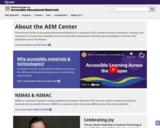
About the AEM Center
The National Center on Accessible Educational Materials for Learning at CAST provides technical assistance, coaching, and resources to increase the availability and use of accessible educational materials and technologies for learners with disabilities across the lifespan.
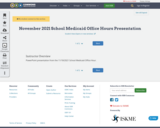
PowerPoint presentation from the 11/18/2021 School Medicaid Office Hour.
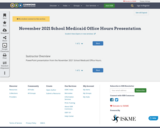
PowerPoint presentation from the November 2021 School Medicaid Office Hours.
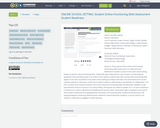
The purpose of this online school setting functioning skills assessment is to determine the likelihood of student success in the online school setting based on specific online functioning skills. Target skills were selected from over six years of observational, qualitative and quantitative data in an online school setting. Students who have strong online functioning skills appear to be more successful in the online school setting according to the data. This assessment form can be used by students to self assess, and/or by a student's parents, administrators and teachers in collaboration. The from consists of ten questions based on the most important functioning skills and behaviors needed in order have the best chance of success in an online setting. Participants are asked to answer on a 1-4 rubric resulting in a Total Score in order to determine the likelihood of success online. Assessment data is expected to be used to drive student interventions including teacher instruction of functioning skills, student self assessment, and ongoing progress monitoring. While this was created for Special Education Students, it can be used for any student or adult who is engaged in online learning.
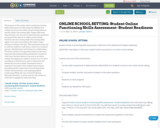
The purpose of this online school setting functioning skills assessment is to determine the likelihood of student success in the online school setting based on specific online functioning skills. Target skills were selected from over six years of observational, qualitative and quantitative data in an online school setting. Students who have strong online functioning skills appear to be more successful in the online school setting according to the data. This assessment form can be used by students to self assess, and/or by a student's parents, administrators and teachers in collaboration. The from consists of ten questions based on the most important functioning skills and behaviors needed in order have the best chance of success in an online setting. Participants are asked to answer on a 1-4 rubric resulting in a Total Score in order to determine the likelihood of success online. Assessment data is expected to be used to drive student interventions including teacher instruction of functioning skills, student self assessment, and ongoing progress monitoring. While this was created for Special Education Students, it can be used for any student or adult who is engaged in online learning.
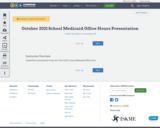
PowerPoint presentation from the 10/21/2021 School Medicaid Office Hour.
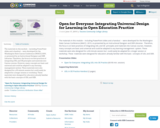
The materials in this module -- including PowerPoint slides and a handout -- were developed for the Washington State Canvas Conference (WACC) 2019, co-presented by an Instructional Designer and OER Librarian. Therefore, the focus is on best practices of integrating UDL and OE principles and materials into Canvas courses. However, many concepts are basic and universal and could be adapted to any learning management system. These materials were also designed for a 60-minute session but could easily be adapted for a longer session or workshop. These materials were designed for educators already familiar with the basic concepts of UDL and OER.

Oregon Department of Education's Program Analyst and Instructional Materials Coordinator Aujalee Moore shares the states processes and guidelines for school district purchases of accessible curriculum and supplemental materials for K-12.
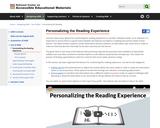
Information and video tutorials to help teachers and students take advantage of built-in features, apps and extensions on a variety of devices to support a personalized and accessible reading experience for everyone.
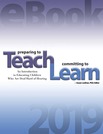
Preparing to Teach is an open-source eBook on deaf education for students and faculty in professional preparation programs, practitioners in deaf education, and families of children who are DHH. Although the focus is on deaf-education teachers who are providing services to students who are DHH, the text is useful to students and faculty in related fields including speech-language pathology, audiology, and special education. Because the text is introductory in nature it covers a broad range of topics and does not replace texts that go into more depth on a particular aspect of deaf education. The text includes references and additional recommended readings and resources for further study.